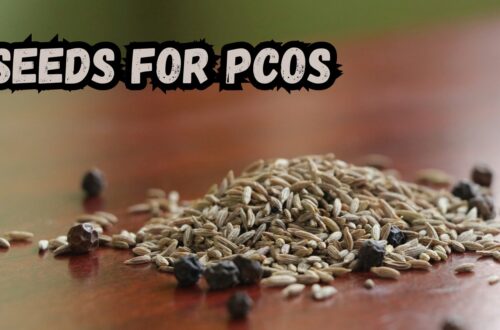Menstrual cycle health is more than just marking dates on a calendar it’s a window into your overall well-being. Many women go through their monthly cycles without truly understanding what their bodies are telling them, missing important signals about hormonal balance, fertility, and potential health concerns. Whether you’re experiencing irregular periods, planning for pregnancy, or simply want to feel more in tune with your body, learning to track your natural rhythm can be transformative.
This comprehensive guide will walk you through everything you need to know about menstrual cycle health, from understanding each phase of your cycle to recognizing warning signs that deserve medical attention. You’ll discover practical tracking methods, learn how lifestyle factors affect your period regularity, and gain insights into optimizing your reproductive health naturally. By the end, you’ll have the knowledge to take control of your menstrual wellness with confidence.
What Is Menstrual Cycle Health and Why Does It Matter?
Menstrual cycle health refers to the regular pattern of hormonal changes that prepare your body for potential pregnancy each month. A typical cycle ranges from 21 to 35 days, with menstruation lasting anywhere from 2 to 7 days. Understanding your cycle isn’t just about predicting when your period arrives it’s about recognizing what’s normal for your body and identifying potential issues early.
Your menstrual cycle serves as a vital sign of overall health. Doctors often call it the “fifth vital sign” because irregularities can indicate underlying conditions like polycystic ovary syndrome (PCOS), thyroid disorders, or nutritional deficiencies. When you pay attention to your cycle patterns, you’re essentially monitoring your hormonal balance, reproductive health, and general wellness all at once.
The Four Phases of Your Menstrual Cycle
Menstruation Phase
This is when your period actually happens, typically lasting 3 to 7 days. Your body sheds the uterine lining built up during the previous cycle. Energy levels may dip, and you might experience cramping or fatigue.
Follicular Phase
Beginning on the first day of your period and lasting until ovulation, this phase sees rising estrogen levels. Your body prepares to release an egg, and you’ll likely notice increased energy and improved mood as this phase progresses.
Ovulation Phase
Occurring around day 14 in a 28-day cycle, ovulation is when your ovary releases a mature egg. This is your most fertile window, typically lasting 24 to 48 hours. Some women notice increased libido, clearer skin, or mild cramping during this time.
Luteal Phase
After ovulation, progesterone levels rise to prepare your uterus for possible pregnancy. If conception doesn’t occur, hormone levels drop, triggering your next period. This phase often brings PMS symptoms like bloating, mood swings, or breast tenderness.

Benefits of Tracking Your Menstrual Cycle Health
Understanding your natural rhythm offers numerous advantages that extend beyond simply knowing when to expect your period:
Better Family Planning Whether you’re trying to conceive or avoid pregnancy, tracking helps you identify your fertile window with greater accuracy.
Early Detection of Health Issues Irregular periods, excessive bleeding, or severe cramping can signal conditions requiring medical attention. Regular tracking creates a clear record to share with your healthcare provider.
Improved Symptom Management When you know which phase you’re in, you can anticipate symptoms and plan accordingly. Schedule important events around your high-energy days and practice extra self-care during challenging phases.
Hormonal Balance Awareness Changes in cycle length, flow, or symptoms can indicate hormonal imbalances that might benefit from lifestyle adjustments or medical intervention.
Effective Methods for Monitoring Your Period
Calendar Tracking
The simplest approach involves marking the first day of your period each month. Over time, you’ll identify patterns in cycle length and can predict future periods more accurately.
Symptom Journaling
Record physical and emotional symptoms daily, including:
- Energy levels
- Mood changes
- Cramping or pain
- Cervical mucus consistency
- Breast tenderness
- Sleep quality
Basal Body Temperature
Taking your temperature first thing each morning can help pinpoint ovulation, as body temperature rises slightly after an egg is released.
Mobile Apps and Digital Tools
Period tracking apps simplify the process by calculating predictions, sending reminders, and generating reports you can share with your doctor.
Common Challenges and When to Seek Help
While some variation is normal, certain signs warrant medical attention. Consult your healthcare provider if you experience:
- Periods occurring more frequently than every 21 days or less than every 35 days
- Bleeding lasting longer than 7 days
- Severe pain that interferes with daily activities
- Extremely heavy flow requiring pad or tampon changes every hour
- Missed periods without pregnancy
- Sudden changes in previously regular cycles
Menstrual cycle health is deeply connected to stress levels, nutrition, exercise habits, and sleep quality. Women who maintain balanced lifestyles typically experience more regular cycles with fewer disruptive symptoms.
By actively tracking your reproductive health, you’re taking an empowering step toward understanding your body’s unique patterns and needs. This knowledge helps you make informed decisions about contraception, fertility, and overall wellness throughout your reproductive years.
Conclusion
Taking charge of your menstrual cycle health is one of the most empowering steps you can take for your overall well-being. By understanding the four phases, tracking your patterns consistently, and recognizing warning signs, you gain valuable insights into your body’s unique rhythm. Remember that every woman’s cycle is different, and what matters most is knowing what’s normal for you. Whether you’re managing symptoms, planning for pregnancy, or simply prioritizing your menstrual cycle health, the knowledge you’ve gained here equips you to make informed decisions. Start tracking today, listen to your body, and don’t hesitate to consult healthcare professionals when needed. Your health journey begins with awareness.





